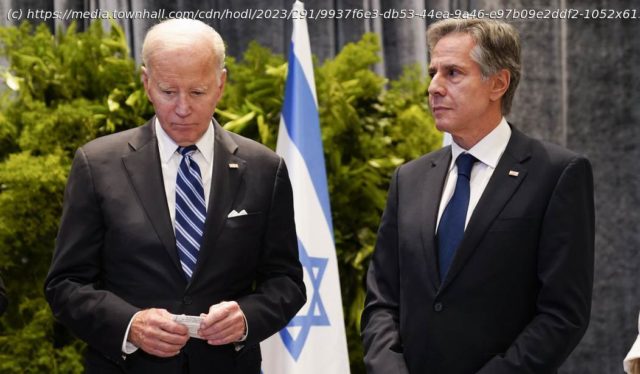Array
Old and busted: America doesn’t negotiate with terrorists. New hotness: We’d rather cut a deal with terrorists than support our ally.
NBC News helps lift this trial balloon at a very curious moment. The Israelis just conducted a dramatic and successful hostage rescue in Gaza, and at the same time, Joe Biden’s preferred Israeli leader left the unity government in Jerusalem. Ostensibly, this is about getting five Americans out of the hands of Yahya Sinwar, but even NBC sees through this:
Biden administration officials have discussed potentially negotiating a unilateral deal with Hamas to secure the release of five Americans being held hostage in Gaza if current cease-fire talks involving Israel fail, according to two current senior U.S. officials and two former senior U.S. officials.
Such negotiations would not include Israel and would be conducted through Qatari interlocutors, as current talks have been, said the officials, all of whom have been briefed on the discussions.
What does the Biden adminiatration have for trade with Hamas? By odd coincidence, they both apparently despise Israel’s current government, if not Israel itself:
The officials did not know what the U.S. might give Hamas in exchange for the release of American hostages. But, the officials said, Hamas could have an incentive to cut a unilateral deal with the U.S. because doing so would likely further strain relations between the U.S. and Israel and put additional domestic political pressure on Israeli Prime Minister Benjamin Netanyahu.
Got that? We’re going to deal directly with the terrorists that slaughtered 1200 Israelis, mostly civilians, raping and killing women and children along the way, to spite an elected Israeli leader Biden doesn’t like.
The timing reveals that as well. Why would this come out the Monday after the dramatic hostage rescue in Nuseirat? That operation required the kind of real-time intelligence that comes from having boots on the ground in and around target areas. The IDF didn’t just raid random houses and get lucky, after all. They identified the two locations and the security employed to a precise level, knew how to infiltrate the area, and then achieved tactical surprise and success in the execution of the operation.
That’s not an accident or entirely a stroke of luck. It followed from the IDF’s strategy of remaining on offense, and it should remind everyone of the reason why a pause and retreat would be a bad idea. That’s especially true now when (a) the intel paid off in a dramatic fashion, and (b) the Israelis just set the disincentives properly for anyone else holding hostages on behalf of Hamas.






